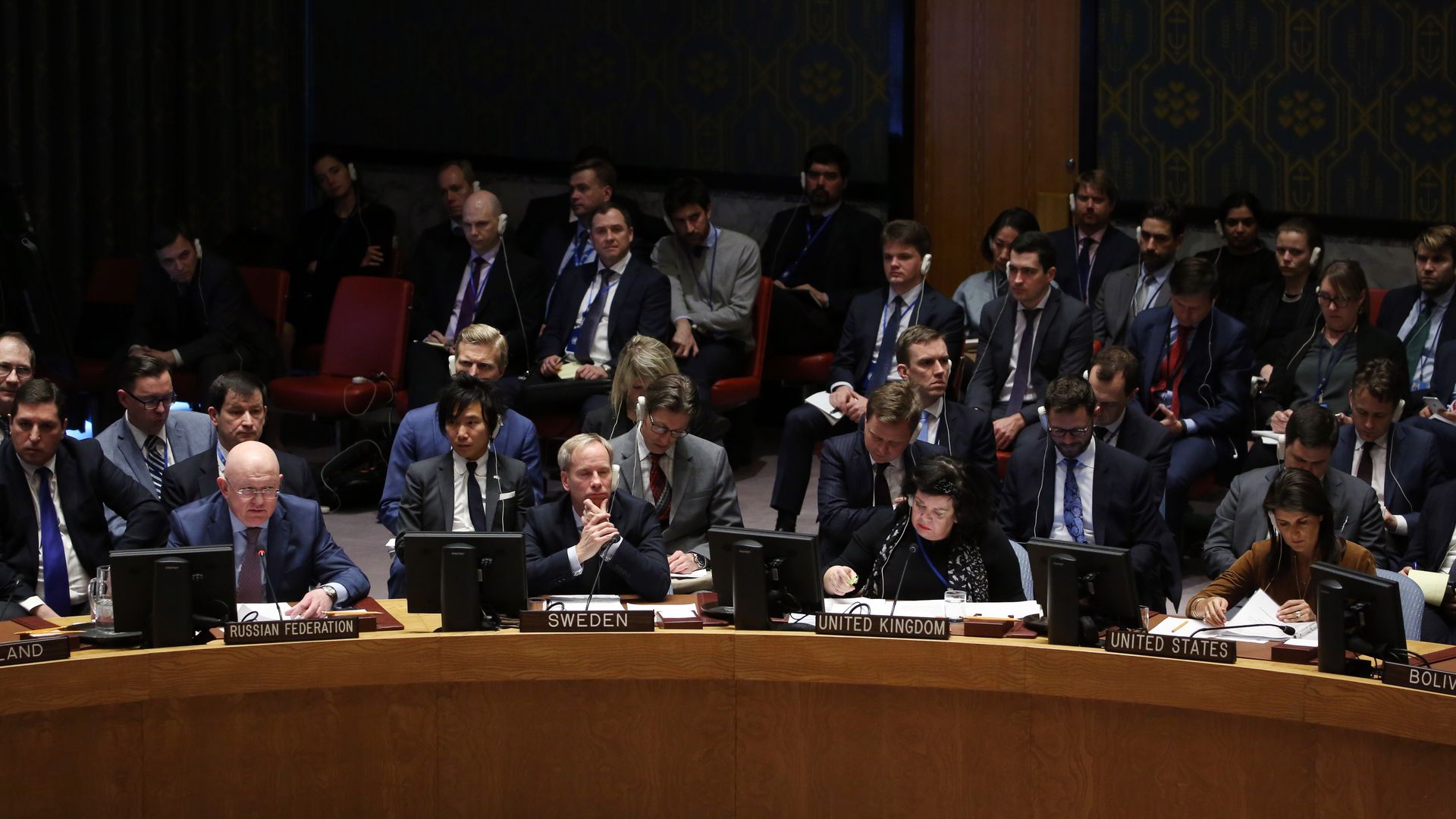Apr 10, 2018 - World
Haley: Russia “protecting a monster” in blocking Syria investigation
Add Axios as your preferred source to
see more of our stories on Google.

Vassily Nebenzia, (L) Ambassador of the Russian Federation to the United Nations during a UN Security Council meeting on suspected chemical attacks in Syria. Photo: Mohammed Elshamy/Anadolu Agency/Getty Images
